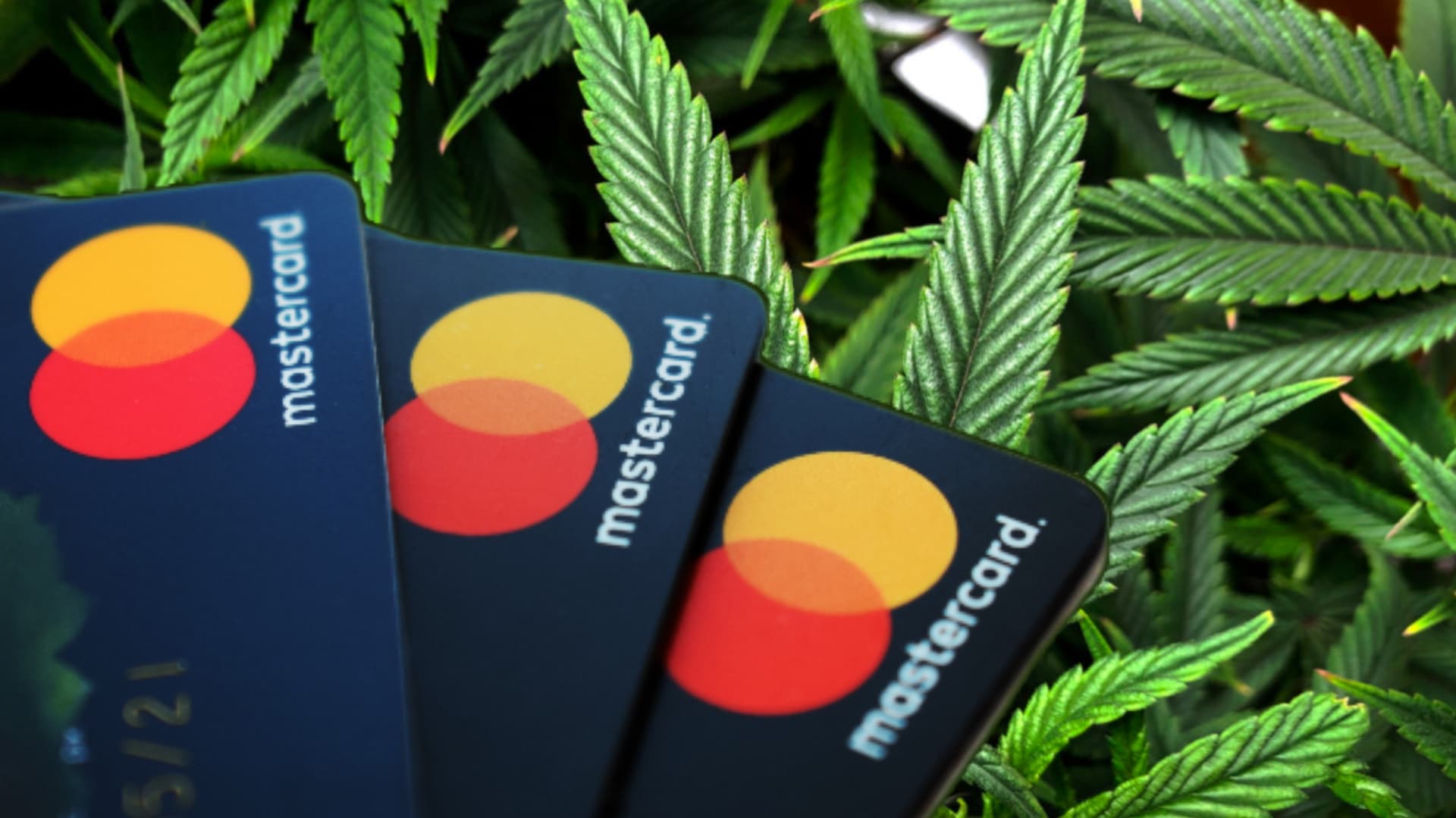
Mastercard Announces Ban on Debit Card Transactions for Weed Purchases
Payment processor Mastercard announced this week that the company is taking steps to prevent PIN-based debit card transactions for marijuana purchases, in a major blow to a regulated cannabis industry already struggling with limited consumer payment options.
On Wednesday, Bloomberg reported that Mastercard, the world’s second-largest payment solutions provider, has notified financial institutions and other payment processors that it will no longer allow debit cards to be used for marijuana purchases. Because of the strict state restrictions on banks doing business with marijuana companies, even those legal under state law, most financial institutions refuse to provide standard banking services, including credit card processing, to such businesses.
In a statement, a spokesman for Mastercard said the action came after it was revealed that cannabis dispensaries were accepting debit cards for cannabis purchases.
“When we became aware of the facts, we investigated it immediately,” said the spokesman. “In accordance with our policies, we have directed the financial institutions that provide payment services to cannabis merchants and connect them to Mastercard to cease activity.”
“The federal government considers the sale of cannabis illegal, so these purchases are not permitted in our systems,” the Mastercard spokesperson added.
Pharmacies are looking for new solutions
When Mastercard’s blocking of debit card purchases for weed began to take hold last week, cannabis dispensaries that had used the process began looking for new payment solutions. Peter Su, Director of Specialty Banks at Hanover Bank, has managed cannabis banking programs and acted as a payment processing consultant for the industry. He said he started taking calls about the situation last week and has heard from even more companies this week.
“My phones are ringing non-stop – people are asking about payment alternatives,” Su said.
Over the past year, some of the largest processors of ATM transactions, such as NCR Corp.’s Columbus Data Services, shut down another payment processing system popular with pharmacies known as cashless ATMs, which allow consumers to use their debit card to process a cash withdrawal they would then go to Payment of cannabis can be used. Tyler Beuerlein, chief strategic business development officer for Safe Harbor Financial Services, a company that provides banking and lending to cannabis businesses, said the crackdown on electronic payment options is leaving licensed marijuana retailers with few alternatives for doing business with their customers.
“In the last year and a half, more and more people have switched to PIN direct debit due to problems with cashless ATMs. If the PIN debit solutions go away, people will have ACH or cash again,” said Beuerlein.
But many consumers find automated clearing house (ACH) payments, which require shoppers to share their bank account and routing number with the pharmacy, to be cumbersome and potentially risky. And cannabis operators would prefer to restrict cash transactions, which can leave retailers vulnerable to robberies and other thefts.
The industry is looking for a legislative solution
A proposed federal legislative solution, the Secure and Fair Enforcement (SAFE) Banking Act, would allow cannabis companies legal access to traditional commercial banking services, including credit card processing. But although the bill has bipartisan support in both houses of Congress and has passed the House of Representatives seven times, it has yet to receive a vote in the US Senate.
Matt Darin, the CEO of Curaleaf, one of the world’s top-grossing cannabis companies, said the news of Mastercard’s crackdown on direct debit transactions for cannabis purchases “reveals the urgent need for the federal government to recognize the cannabis industry as a tax.” It is a well-paid and job-creating sector.”
“Our industry is one of the fastest growing sectors in the United States, generating more than $3.7 billion in federal tax revenue in 2022 and employing over 428,000 Americans,” Darin wrote in an email to High Times. “Additionally, cannabis is legal in 40 states for medicinal purposes and 23 states for recreational purposes, and an overwhelming 88% of Americans believe cannabis should be legalized nationwide. When will the laws catch up?”

Post a comment: